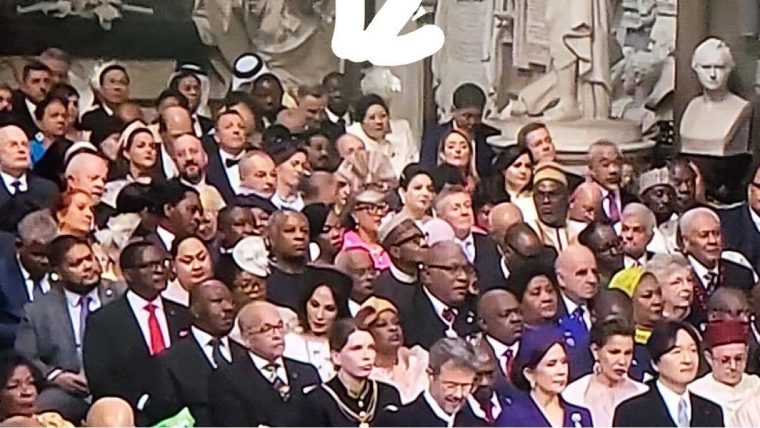 Former Information and Higher Education Minister Jonathan Moyo says Zimbabweans should not be infatuated with trivialities like where President Emmerson Mnangagwa sat at the coronation of King Charles III.
Former Information and Higher Education Minister Jonathan Moyo says Zimbabweans should not be infatuated with trivialities like where President Emmerson Mnangagwa sat at the coronation of King Charles III.
Mnangagwa’s mere invitation was a big deal as it was the first bilateral invite to the country’s head of state in 23 years. It was therefore a significant icebreaker in UK-Zimbabwe bilateral relations. “It was a big deal.”
Mnangagwa’s spokesman George Charamba said the sitting arrangement at the coronation put monarchs ahead of presidents and prime ministers which is why King Mswati and other royalties sat in the front row.
“Secondly, leaders were sat in relation to the membership of their countries to the Commonwealth, of which King Charles III is head. Zimbabwe is yet to rejoin the Commonwealth. The sitting position for the Zimbabwean leader was thus appropriate, and made significant by the fact that he still was part of the leaders in attendance in spite of Zimbabwe’s non-membership to the Commonwealth,” Charamba said.
Moyo said while the question of who sat where and why – especially regarding the sitting of Mnangagwa was hot trivial pursuit among a few Zimbabweans who followed the coronation, it has to be said that the invitation to the President of Zimbabwe was no trivial matter.
“It is trite to mention that no invitation would have been extended to the President of Zimbabwe had the coronation occurred when the incumbent was President Mugabe. In other words, if former President Mugabe were alive and in office today, the British Monarch and His Majesty’s Government in the UK would not have invited him,” Moyo said.
“This raises a number of talking points, not necessary to outline or exhaust in full here. But one of the talking points worthy of mention here is that, it can now be said confidently and even authoritatively that after the “Hondo Ye Minda” fallout in 2000 between Britain and Zimbabwe over land, with Mugabe at the helm and spearheading Zimbabwe’s Third Chimurenga under which Zimbabwe’s land was reclaimed from colonial dispossession of the indigenous population, there was no way the corridors of faded British colonial power and fallen empire would have forgiven him, and no way Zimbabwe and Britain would have kissed and made up, to restore pre-2000 bilateral relations with Mugabe in office.
“Unlike @edmnangagwa’s attendance at COP26 conference in Scotland – a multilateral meeting under @UN to which members are entitled to attend and at which hosts are obliged to indulge them – the Coronation of King Charles III was entirely a British event where attendees were by the invitation of the British authorities, and them alone.
“The King Charles III Coronation invitation to the President of Zimbabwe – the first bilateral invite to the country’s head of state in 23 years – was therefore a significant icebreaker in UK-Zim bilateral relations. It was a big deal.
“It is notable that the thawing of relations between Britain and Zimbabwe is happening post-Brexit when – because it needs all the friends it can muster around the world following its exit from the EU – Britain’s foreign policy is now increasingly prioritising its national economic interests over contentious issues such as human rights in its former colonies, which colonies never enjoyed human rights under British rule.
“The thawing of bilateral relations between the UK and Zimbabwe is therefore not to be measured by the photo opportunities or the number thereof that @edmnangagwa had or was left out from at the Coronation of King Charles III; or the number of high profile courtesy calls and visits that he had; or whether the Secretary General of the Commonwealth did in fact use or abuse her courtesy meeting with him to tell him to “reform or no readmission” – something which will be decided by perception and not reality; or where and with whom @edmnangagwa sat with at the official event, although it is clear that he sat in the same VVIP area with other heads of state and government such as Zambia’s Hakainde Hichilema and Malawi’s Lazarus Chakwera.
“What is important is that the invitation to the President of Zimbabwe by British authorities to attend a major national event of historic importance to their history and governance, means that the 23-year-old diplomatic jinx between Britain and Zimbabwe has been broken.
“This alone is more than enough to confirm the thawing of bilateral relations between the two countries. A new chapter has opened, and what happens next will depend on praxis.
“To understand this – and going forward – the interests of individuals should not be conflated or confused with the interests of the two countries, not least because the interests of individuals are narrow and short lived as they come and go, while the countries have broad, inter-generational, historic and thus permanent interests!”
(353 VIEWS)

